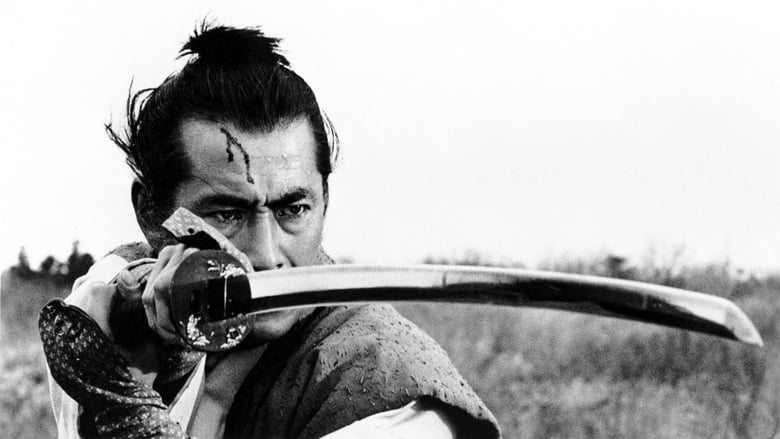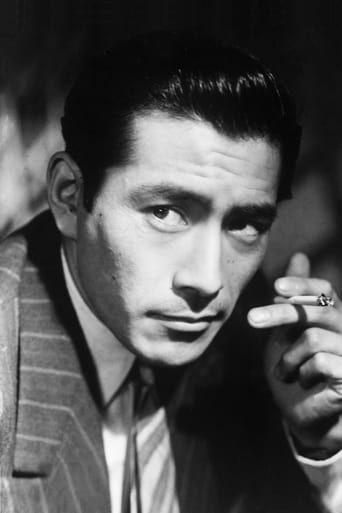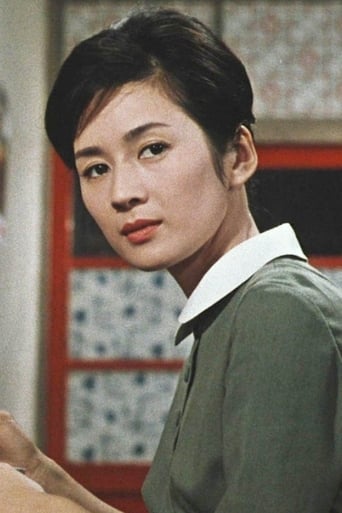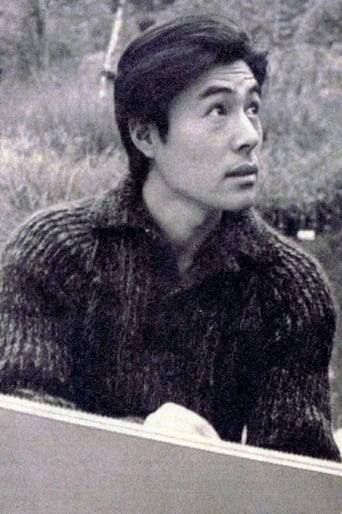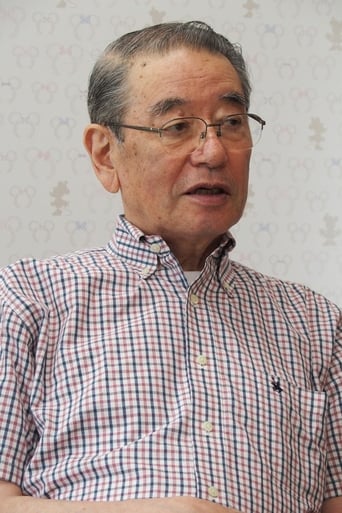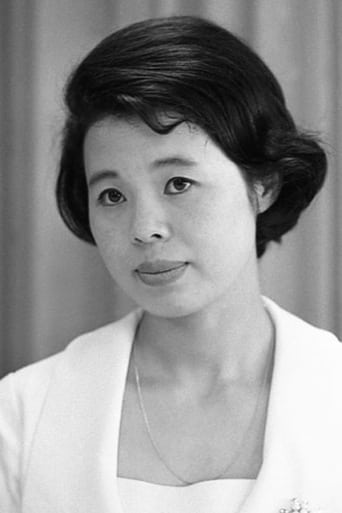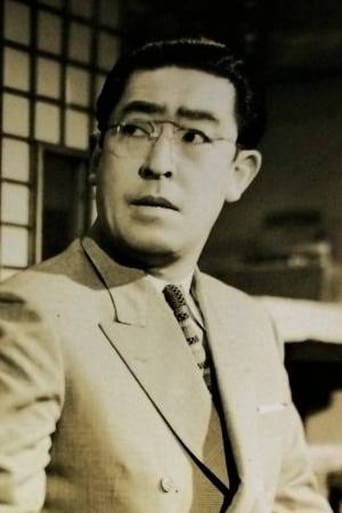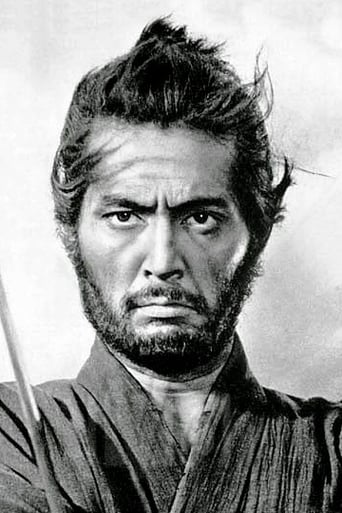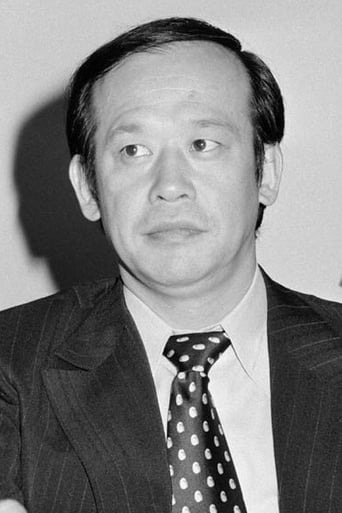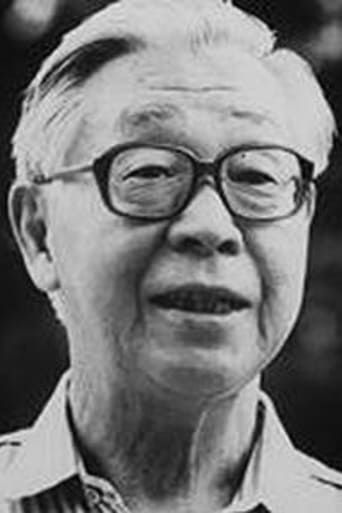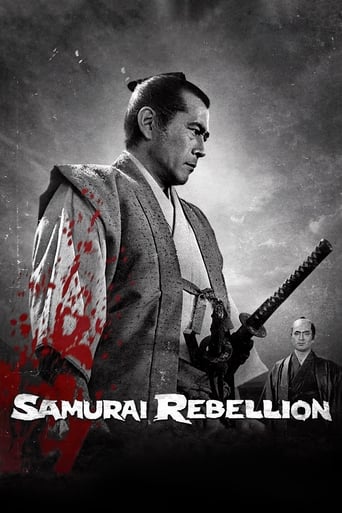
Samurai Rebellion
September. 24,1967 GThe mother of a feudal lord's only heir is kidnapped away from her husband by the lord. The husband and his samurai father must decide whether to accept the unjust decision, or risk death to get her back.
Similar titles

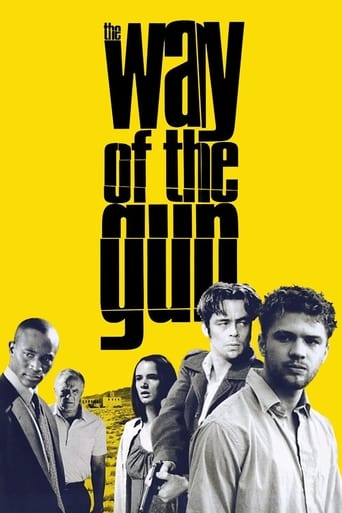
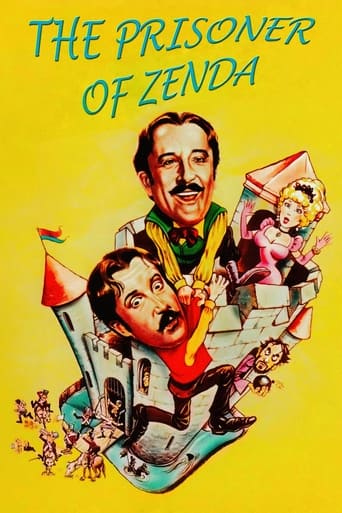



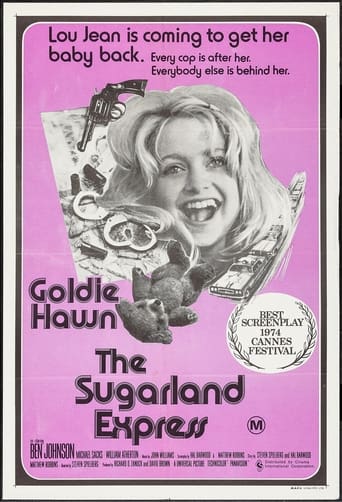



You May Also Like

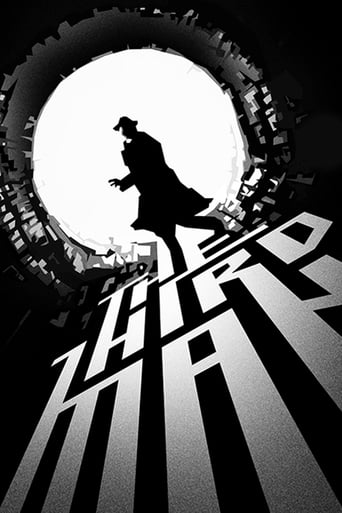


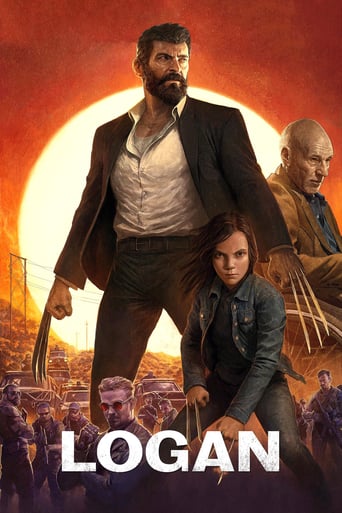
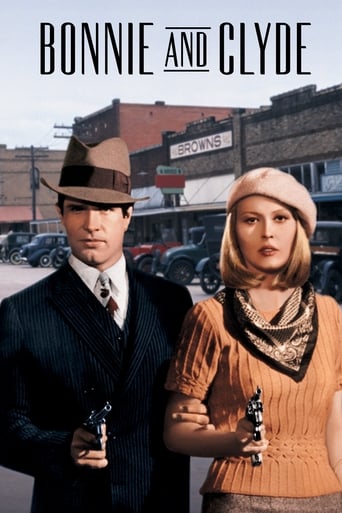


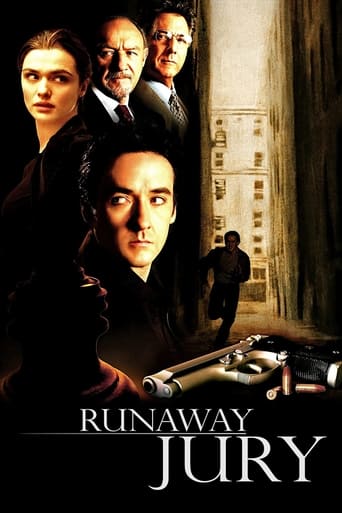

Reviews
Very very predictable, including the post credit scene !!!
i must have seen a different film!!
It's a feast for the eyes. But what really makes this dramedy work is the acting.
This is a small, humorous movie in some ways, but it has a huge heart. What a nice experience.
Made three years after the colour epic "Kaidan" (1964), two years after the break-up of Kurosawa and Mifune in "Akahige" (1965) and five years after Kobayashi's hit for the rival Shochiku "Harakiri" (1962), "Jôi-uchi: Hairyô tsuma shimatsu" (1967), known in English as "Samurai Rebellion" is just as good as I've come to expect from Kobayashi. While there are similarities to past films (Mifune takes justice in his own hands, Kobayashi paints a rotten society and his heroes and heroines, if you want to call them such for all their suffering, are faced with an impossible task and fall between), "Samurai Rebellion" is to "Harakiri" what "Tsubaki Sanjûrô" (1962) is to "Yôjinbô" (1961): a thematic and stylistically sibling that annotates, expands and elaborates the thesis Kobayashi explored in 1962 of both the social injustice masquerading as clan tradition and law and the radically dimensional visual vocabulary built around rigid shapes and symmetries. If there's a single motif that runs through Kobayashi's work it's the inevitability of risk. Risk both in the story but also in the filmmaking. He's stylistically brilliant, a true master of moving the camera geometrically and harmoniously, that one might expect an equally harmonious narrative. But that's not Kobayashi: his stories take him to witness such cruelty, both without and within that the contextual discrepancy between the formal beauty of the film and its shocking narrative underline the cruel irony that befits the film, in fact lives and breathes it. At this writing the Criterion Collection DVD of the film is already nine years old, not that the DVD wouldn't be excellent for being nine years and in standard definition. But one does wonder when it'll be released on Blu-ray.
With a title like Samurai Rebellion and a disc cover featuring a bloody, threatening Toshiro Mifune, I was expecting an old-fashioned, meat-and-potatoes samurai yarn with clearly-defined good guys and bad guys. Instead, I experienced the near opposite: a movie awash in shades of gray and in a world where honor, loyalty and sword mastery are not always enough. I'm an avid defender of genre entertainment, placing the samurai genre near the top of ones that reliably please. Samurai Rebellion, however, offers an experience that is much more interesting, as well as with a much more long-term satisfaction.Set in a time of peace and entirely on the grounds of the Sasahara clan, the movie begins with veteran swordsman Isaburo (Mifune) and his friend Tatewaki involved in a required yet ultimately pointless - and for these soldiers, elementary - training exercise under the direction of the clan lord. It becomes immediately clear that the soldiers know that the exercise is beneath them yet have no power to object to their leader's wishes, a moment which in turn establishes - in addition to the stark, imposing opening shots of the Sasahara fortress - the clan rule's imposition and obstinacy. With no opportunity to put his skills to meaningful use and with a tradition-loyal wife at home in whom he cannot confide, Isaburo starts to feel very empty and useless. This changes, though, when Isaburo learns that his son, Yogoro, is to marry Ichi, a former mistress of the clan lord. Ichi, who had a son with the ruler, quickly turned into a pariah for lashing out at him for immediately taking up with another woman as if their affair never happened. Despite her reputation, Yogoro and Ichi's marriage is a strong and loving one, producing a daughter as well as a revitalization of sorts for Isaburo, who feels more alive now than he ever did as a servant of the clan's cause. Unfortunately, his elation is short-lived, as an untimely death makes the clan lord's illegitimate son his sole heir, which by tradition requires Ichi to return to the ruler's side. Unwilling to watch his family fall apart, Isaburo opposes the entire clan and seeks to expose its wrongdoings all by himself, an act resulting in bloodshed, the revelation of true colors and ultimately, the pitting of friend against friend.As I mentioned earlier, this is a samurai movie where the villain is not bandits or warriors from another kingdom, but instead the kind of establishment that samurai were trained to uphold. In doing this, the movie takes apart the ugly side of fealty, especially in how the happiness of the subjected can vanish at the signing of an order or even at a whim. Japan being a country that takes its history and traditions very seriously, it's a wonder Kobayashi was able to get away with telling a story like this, his transition from working in the studio system to freelance being the likely explanation. Samurai Rebellion also defies convention in style and technique: instead of interspersing scenes of action with scenes of dialogue as seen in the typical samurai movie, Kobayashi gives us a slow burn of tension, saving all of the action to the best possible point to release it. Isaburo's struggle reminded me very much of Terry Malloy's in On The Waterfront in both purpose and in quality of performance. Mifune's transition from subservient veteran to vigilante is expertly gradual, and while his violent outbursts in his other performances tend to go over the top, here, he is true to character from Isaburo's highest point to his lowest. All of the supporting performances are equally solid, especially Yoko Tsukasa's, who demonstrates Ichi's powerlessness and desire for freedom with great pathos. The movie does not succeed on all points, however: the vast majority of Samurai Rebellion is dialogue-driven, and there are many scenes that could have been more interesting had Kobayashi showed more instead of told, especially since most of these scenes take place in formal settings where everyone must remain stock still. Formality or not, a little camera movement in these scenes could have gone a long way. Still, it has to be said that when Kobayashi does "show," such as in the aforementioned scene during the training exercise, he does it with great poignancy and efficiency. Also, there are some moments where characters mention that a great deal of time has passed, but since they exhibit little to no corresponding changes in age, behavior, and with the possible exception of Ichi and Yogoro's daughter, appearance, these passages are hard to take seriously. Regardless, Samurai Rebellion stands as one of the best samurai movies I've seen, not to mention proof that Kobayashi is as deserving of praise of Japanese directors like Ichikawa and Kurosawa.
"Samurai Rebellion" is a feminist action movie. I find that almost unbelievable, since feminism and macho sensibilities usually don't go hand-in-hand, but here they blend together perfectly. That's what makes this film such a rewarding and unique viewing experience.I won't delve too much into the plot details, but suffice to say that the film concerns some rebellious samurai (as if you couldn't tell!) who are dedicated to protecting a wronged woman, the Lady Ichi. Thankfully, Lady Ichi is no cardboard character - she's as intelligent and passionate as she is beautiful, and her interactions with the samurai are fascinating. So, as the samurai fall in love with her and line up to protect her, the audience falls for her, too. I have to give a lot of credit to actress Yôko Tsukasa for making her character so sympathetic.The samurai are a strong point, too. The younger one, Yogoro, is played with sincerity and charisma by Takeshi Katô. And the older samurai, Isaburo, is played by that incomparable icon of Japanese cinema, Toshirô Mifune. When he's acting in Kurosawa films, I sometimes find Mifune a little hammy, but in this film he gives an extremely dignified and simply wonderful performance. (I particularly like his little laugh of disdain, which he unleashes when his superiors make unreasonable requests - "ho ho ho!") Of course, even the best actors in the world need the support of a strong director, and they've got that support here. Unlike Kurosawa, director Masaki Kobayashi doesn't add much Western-style "flair" to his movies; instead, his films (so far as I can tell) are more starkly beautiful and gradually paced. Some might argue that Kobayashi's style is actually a little dull, but I've been conditioned to slowly paced foreign films and I don't mind it a bit. In fact, I appreciate the way that Kobayashi builds up tension and then hits the audience with a really satisfying payoff.In short, everything about this movie works - the script, the actors, the design, the direction. It features a lovely romance, some cool (if stylized) action, and genuinely surprising plot twists. There's some explicit violence towards the end, too, but unlike most American films, "Samurai Rebellion" doesn't glorify combat. Fighting is depicted as a destructive last resort.I was perhaps being a little glib when I described the movie as feminist - a Western viewer might not recognize it as such - but it certainly does feature one of the strongest and most compelling female characters that I've encountered in a long time. For that reason alone, this is worth seeing. But the film's many other virtues are impressive, too, and have helped to propel "Samurai Rebellion" right to the top of my list of favorite movies.
Isaburo Sasahara is a former samurai warrior and master swordsman who now lives a quiet life as head of his family, he has been continually henpecked by his wife for all their married life, so its his ambition to have his eldest son Yogoro married to a woman who will respect him. Isaburo's plan is thrown into disarray however, when he receives a notification from the Lord of the Aizu clan, that he would like Yogoro to marry Lady Ichi, a mistress of his who has fallen out of favour. This in itself seems rather insulting to Isaburo, as Lady Ichi he learns has a reputation of being violent towards his lordship and added to that she has an illegitimate child by him. After much family discussion they all agree that to refuse his lordship's offer would mean certain ruin for the Sasahara family, so they agree. Much to their surprise Lady Ichi is a kind, affectionate, helpful and thoroughly pleasant woman. She regales them with tales of his lordships cruelty and adulteress behaviour, the family are pleased she has finally found happiness with Yogoro.Yogoro and Ichi are blessed with a child, that helps Ichi forget she had to give up her first child, as it was second in line to his lordships domain. However after the heir dies, Yogoro now head of the family receives another request, that Ichi should return again, as her son is now heir and it wouldn't be fitting for the mother of an heir not to be with her child.This however is the final straw and Isaburo and Yogoro set out to defy their lord and fight for their rights.Samurai Rebellion was Masaki Kobayashi's first foray into the field of independent films and he returned to a familiar theme (previously used in Harakiri,1962) of injustice perpetrated by a tyrannical authority figure. Kobayashi teamed up with legendary Toho studios and Mifune Productions to recreate the literary vision of Yasuhiko Takiguchi's "Hairyo tsuma shiatsu" in a script by Shinobu Hashimoto. The films original title literally translated as Rebellion: Receive the Wife was changed for western audiences at the request of Toho, as they didn't believe it sounded manly enough for a Western audience that were very keen on Samurai films. Despite its more familiar title, this is very much a family drama, that wonderfully builds up its characters and to label it as a Samurai or action film would be erroneous, the rebellion scenes occurring only as we near the finale. Kobayashi's also uses Japanese architecture and symmetry to further the mood, using pillars, castle walls, doors, protective eaves and endless straight lines to promote stability, when the Sasahara family are having a less than unified debate on their predicament, the members are all stationed at unusual differing distances from the camera making the harmonious composition appear unsymmetrical when a member leaves the room and also towards the end of the film Isaburo and Yogoro remove all elements of geometric stability from their home as they await the arrival of their feudal lords men, their act seemingly to once and for all end their association with their restraining dogmatic social structures.The performances are all superb, Mifune giving us one of his more retrained performances with only glimpses of his more familiar gusto as he emotes and reflects on the tragedy of the situation his family is in. The great Tatsuya Nadakai is restricted to a few brief scenes, but his power still shines through. Yôko Tsukasa and Go Kato also produce memorable performances as the loving couple willing to die to retain their partnership. Samurai Rebellion is a powerful film that reflects its directors concerns with the abuse of authority, it exudes class and visual style and its attention to detail is second to none. As a film it can't be faulted.
Top Streaming Movies











